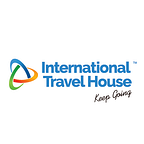Maximizing Impact: A Comprehensive Guide to Measuring Event ROI
In the dynamic world of M.I.C.E. (Meetings, Incentives, Conferences and Exhibitions) travel, the success of an event is greatly dependent on its Return on Investment (ROI). This metric provides invaluable insights into the effectiveness of an event and helps businesses make data-driven decisions for future endeavors. In this blog post, we’ll delve into the strategies and tools that can help you measure and maximize your event ROI.
Understanding Event ROI
Event ROI is a financial ratio that compares the benefits gained from an event to the costs incurred. It’s a crucial metric for evaluating the success of your M.I.C.E. events and determining their contribution to your overall business objectives.
Key Components of Event ROI
Event Costs: This includes expenses such as venue rental, catering, accommodation, transportation, marketing and technology.
Event Benefits: These can be both tangible and intangible, including increased sales, brand awareness, lead generation, customer satisfaction and employee morale.
Strategies for Measuring Event ROI
Clear Objectives: Define specific, measurable, achievable, relevant and time-bound (SMART) objectives for your event. This will provide a clear framework for measuring success.
Pre-Event Surveys: Gather baseline data from attendees before the event to assess their expectations and knowledge. This will help you measure the impact of the event on their understanding and behavior.
Post-Event Surveys: Conduct surveys after the event to gather feedback on attendee satisfaction, knowledge gained and actions taken. These surveys can provide valuable insights into the event’s effectiveness.
Track Leads and Conversions: Monitor the number of leads generated and the conversion rate to sales or other desired outcomes. This will help you quantify the event’s contribution to your business goals.
Social Media Analytics: Analyze social media metrics such as engagement, reach and sentiment to gauge the event’s impact on brand awareness and reputation.
Financial Analysis: Calculate the event’s ROI by dividing the net benefits by the total costs. This will help you determine whether the event was a financial success.
Qualitative Feedback: Collect qualitative feedback through interviews, focus groups or case studies to gain a deeper understanding of the event’s impact on attendees and stakeholders.
Tools for Measuring Event ROI
Event Management Software: Specialized tools can help you track event expenses, attendee data and post-event surveys.
CRM Software: A CRM system can help you manage leads generated at the event and track their progress through the sales funnel.
Social Media Analytics Tools: Multiple platforms are available which can provide valuable insights into social media engagement and sentiment.
Measuring event ROI is essential for understanding the impact of your M.I.C.E. events. By implementing the strategies and tools outlined in this blog post, you can gain valuable insights into the effectiveness of your events and make data-driven decisions for future events. Partnering with an expert in M.I.C.E. travel can provide you with tailored guidance and support to help you achieve your event goals and measure their success.
